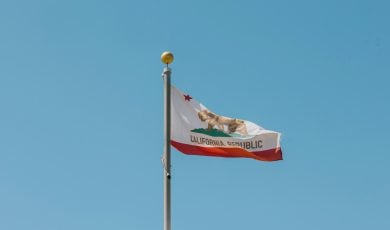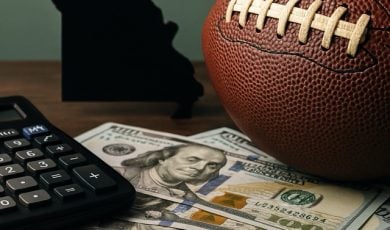Minnesota sports betting negotiations have taken a step back entering the new legislative session, putting doubt on what seemed like the most likely state to legalize sports betting in 2024.
For the past two years, Minnesota sports betting has come down to whether Indian tribes and horse racetracks could strike a deal to get both on board. At the end of last session, the Minnesota Indian Gaming Association (MIGA) offered racetracks a revenue-sharing arrangement for exclusivity over sports betting.
The deal fell apart over a proposed cap and restrictions on how the money could be used. Each party hoped to enter 2024 with an agreement to bring to lawmakers. But the Minnesota legislative session began Monday with negotiations broken down.
Canterbury Park CEO Randy Sampson explained to PlayUSA:
“I said I hoped we could work something out during the interim. That hasn’t happened. I did meet with MIGA and my perspective was that we haven’t made any progress toward a meaningful solution for the racing industry. In fact, we’re going in the opposite direction. We’ve moved further apart instead of getting closer together.”
Sports betting legislation from Sen. Matt Klein (SF 1949) and Rep. Zack Stephenson (HF 2000) carried over to 2024 but did not do so with momentum.
After months of hearing from local charities about the damage legislative changes to charitable gaming did to their revenue projections, lawmakers are bringing charities into the sports betting conversation.
“What makes this year more complicated compared to last year is the changes made to the charitable electronic pull tabs,” Sen. Jeremy Miller told PlayUSA. “Certainly we need to figure out a path where we can get both the tribes and tracks to come to an agreement as well. But the biggest change and most difficult obstacle right now is how we involve the charities.”
PlayUSA spoke with Minnesota lawmakers and stakeholders about the challenges to pass sports betting legislation this year.
Minnesota horse racing tracks want more
If tribes are going to get exclusivity for sports betting, tracks want the opportunity to pursue a horse racing product that could help their industry. Canterbury Park and Running Aces jointly made a request for the Minnesota Racing Commission to authorize them to offer historical horse racing machines.
They contend HHR falls under the pari-mutuel wagering voters in Minnesota granted them. The Minnesota Racing Commission scheduled an informational hearing for March 5.
“We recognize that the opportunity for us to meaningfully participate in sports betting is very limited based on the current bills out there, so we believe that we need to pursue what options are available to us to enhance the horse racing industry,” Sampson said. “Historical horse racing is the most logical option because it’s a pari-mutuel product that has been successful in other states.”
The Shakopee Mdewakanton Sioux Community (SMSC), Minnesota’s most influential tribe, already submitted an opposition letter to the commission arguing that such a move would be unconstitutional and requires legislative approval.
Minnesota tribes have exclusivity over offering video games of chance. HHR games play similarly to slot machines. However, Running Aces CEO Taro Ito said the games the tracks seek aren’t the same as the HHR played in Kentucky. It’s first-generation HHR, where patrons do have to make a choice based on a historical horse race and watch at least the last 15 seconds of the race.
Ito explained to PlayUSA:
“Tribes have exclusive rights to play electronic video games and blackjack, but nowhere does it say they have exclusive rights where no one can play anything else. I think about it this way. Let’s say tribes got a monopoly selling steak in Minnesota. I’m a new company and want to make a veggie burger. It looks like a burger and tastes like a burger, but it’s not a burger. It’s made of veggies. The tribes come to me and say you can’t make that because it looks like a burger.”
Minnesota Indian tribes offering less
In the final weeks of the last session, Klein amended his bill to include an offer from tribes to provide tracks with 30% of the state’s 10% tax revenue on online sports betting, capped at $3 million after the first $20 million. Tracks didn’t like the cap or the restrictions on what they could do with the money.
That offer is no longer on the table. Minnesota’s smaller tribes backed off the offer, concerned they would make less from sports betting than the tracks.
“I think smaller tribes did the math and said, wait a minute, tracks are going to make more than us and that’s not acceptable, so that’s why that deal got scuddled,” Ito said. “Legislators think they’ll give out 11 licenses and everyone will make money, but that’s wrong. Because everyone knows that Mystic Lake [owned by SMSC] is going to make 80%-to-90% of the online sports betting revenue. Treasure Island will make a bit, and Grand Casino up north might make a bit. Smaller tribes partnered with Joe Shmoe sportsbook aren’t going to make any money.”
From the tribal perspective, this effort to gain historical horse racing has also shut down discussions with the tracks over sports betting. Negotiations for the sports betting bill could end up including clarity that the tracks can’t move forward with HHR through the racing commission.
Miller proposes giving tribes exclusivity but allowing them to partner with tracks and Minnesota professional sports teams to offer in-person wagering at their facilities. Tribes and tracks also have previously discussed the possibility of allowing all of them to add craps and roulette to their gaming options. These options could increase revenue for all but have not received unanimous tribal support.
Ito said there are deals tracks would make with tribes.
“There are combinations of all of these that work. It’s just a matter of sitting down and seeing what we can agree to. But Klein’s amendment told us exactly what we could spend the money on. We had to spend it on purses and infrastructure like barns and stables. I don’t think that is fair. No one is telling the tribes how to use the money they’ll be getting from sports betting. Why is it that they can tell racetracks exactly what we can use it for? They can say we can’t use the money to compete against tribal casinos. That makes sense. Other than that, why can’t we take it to the bottom line or use to improve the roads to our facilities?”
Charities emerge as third stakeholder
In the final days of the last legislative session, Minnesota legislators included language restricting electronic pull tabs used by charitable gaming operators so that they don’t mimic slot machines.
Results of the e-pull tabs are predetermined, similar to a physical lottery pull tab. However, a visual display is used for entertainment.
The SMSC sued the Minnesota Gambling Control Board over the way all pull tabs could be revealed at once. A state court of appeals ruled in favor of the tribe. The legislature responded by attempting to remove the questionable elements.
Charitable gaming is conducted by gaming operators at bars and restaurants in Minnesota. A small portion of the revenue goes to support local veterans organizations, youth sports, volunteer fire departments and organizations that provide services for people with disabilities.
In his sports betting legislation, SF 3803, Miller rolls back some of these charitable gaming changes to ensure that the state’s charities don’t lose money.
“After hearing from many charities, I felt it was important that if we’re going to do something with sports betting, for which I’m a strong advocate, we need to revisit some of those changes we made last year. My intent and hope with this proposal is to get that discussion started.
“I’ve always considered them a stakeholder, but I think with what happened last year with electronic pull tab changes, they are more of a stakeholder than in the past. I would consider them a major stakeholder when it comes to sports betting legislation this year.”
As a Republican, Miller is a member of the minority party in the Minnesota Senate. That means his bill won’t be the Minnesota sports betting vehicle. But Republican votes likely are needed to pass sports betting.
Miller said he has had productive conversations with Klein and Stephenson about including charities in their sports betting legislation. Stephenson’s legislation does include tax revenue for youth sports, which is one of the areas supported by charitable gaming.
Asked about the possibility of including charities by CBS News Minnesota, Stephenson responded:
“My bill is focused on sports betting. That’s what the bill does. It doesn’t bring in other unrelated topics at this point. … I really appreciate Sen. Miller starting the conversation by bringing an idea forward and I’ve been talking with him. I’ll continue to talk with him. We’re going to work together to try to find something that’s broadly acceptable, which is always my goal with legislation.”
Sampson said the tracks welcome charitable gaming’s inclusion in the bill but admits it does make passage more difficult.
“Figuring out how to support an additional stakeholder will make passage of the bill a little more complicated. But charities have always been an important part of Minnesota’s gaming industry. I think the charities, tribes and tracks all have a stake in this and the sports betting legislation should be something we all can support.”
Legislative will might not be as strong
For 2023 and 2024, the DFL took rare control of the governor’s office and both legislative chambers. With the Minnesota House of Representatives up for re-election in November, that could change. So the DFL is looking to push through priorities this year while they are assured control.
At the end of last session, House Speaker Rep. Melissa Hortman and Senate Majority Leader Kari Dziedzic spoke of sports betting as an issue left undone that will be a priority this year.
However, a cancer recurrence forced Dziedzic to step down as majority leader. Sen. Erin Murphy takes over as majority leader, and it’s unclear where she stands on sports betting.
Legislative leaders remain interested in sports betting but aren’t strongly pushing for its passage. On Monday at the Minnesota Chamber of Commerce, legislative leaders provided the following odds for Minnesota sports betting passage in 2024:
- Hortman 60-40
- Murphy 51-49
- Senate Minority Leader Mark Johnson 50-50
- House Minority Leader Lisa Demuth 52-48
Rep. Pat Garofalo, sports wagering’s most long-standing champion in the Minnesota legislature, told PlayUSA that sports betting is on the legislative agenda, but it’s not among the top priorities. And the legislative will to do sports betting still depends on the stakeholders agreeing.
“It’s something being considered, but is it a key priority that needs to get done before adjournment? I’m not hearing that. And this is my last term, as I’m not running for re-election, so no one wants to get sports betting done more than me.”








